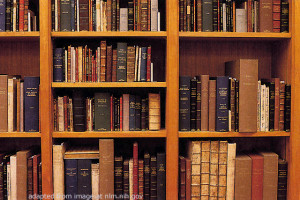Russia Tells Its Study-Abroad Students: It’s Time To Come Home

(Article ©2018 RFE/RL, Inc., Radio Free Europe/Radio Liberty – rferl.org – April 17, 2018 – also appeared at rferl.org/a/russia-tells-its-study-abroad-students-it-s-time-to-come-home/29173184.html)
A Russian government agency is calling on Russians studying at universities abroad to come home to continue their studies, a campaign that appears tied to the sharp downward spiral in relations between Moscow and the West.
Rossotrudnichestvo, which is tasked with overseeing the wellbeing of Russians living out of the country, unveiled a new marketing campaign April 16 with the title Highly Likely Welcome Back. The name appears to be a subtle jab at British Prime Minister Theresa May, who has said it was “highly likely” that Russia was responsible for the poisoning of a former Russian double agent in England.
“As we know, the domestic politics in a host of countries, and in Europe in particular, have increasingly taken on a harshly expressed anti-Russian character. We are obligated to highlight the negative influence of Russophobic attitudes on the activity of our compatriots, which purposely narrow their opportunities for self-realization,” one unnamed Rossotrudnichestvo official was quoted by the RIA-Novosti news agency as saying.
Around 60,000 Russians studied outside the country in 2014, according to the Education and Science Ministry.
Genri Sardarian, dean of the department of management and politics at Moscow’s MGIMO, one of Russia’s premier universities, said his school and others around Russia are ready to accept scores of Russians to continue their studies at home.
Formally known as the Federal Agency For CIS Matters, Compatriots Living Abroad, and International Humanitarian Cooperation, Rossotrudnichestvo has been around for years. Some Western intelligence agencies suspect it is used as a front organization for Russian espionage and recruiting.
Worsening Ties
Russia ties with the West, which have been worsening for years, took an even more dramatic turn with the nerve-agent poisoning of Sergei Skripal, a former Russian military intelligence officer who was convicted of spying for Britain in the 2000s and later deported from Russia. May blamed Moscow for the incident, which also affected Skripal’s daughter, Yulia.
Amid the downward spiral in relations between Russia and the West, Moscow has issued periodic warnings to Russian citizens about hazards they might face outside the country. In 2016, Russian media reported that the government had instructed government bureaucrats and other officials to stop living abroad.
Among prominent Russian government officials and members of the business elite whose children have studied at Western universities are Foreign Minister Sergei Lavrov, Kremlin spokesman Dmitry Peskov, Duma lawmaker Sergei Zheleznyak, and Kremlin-connected bankers Pyotr Aven and Mikhail Friedman.
Peskov’s daughter Yelizaveta caused a minor stir in 2016, when she published a biting commentary on her Instagram, saying she learned more in a year of studying in France then a year of schooling at Moscow State University, one of Russia’s leading schools.
Meanwhile, it’s gotten more difficult for Western students — Americans in particular — to study in Russia.
The U.S. State Department issued a travel advisory in January that listed Russia as one of the most dangerous countries to visit, due to harassment and terrorism.
That prompted Stanford University, in California, to suspend its study-abroad program in Russia.
Still, the Association for Slavic, East European, and Eurasian Studies, a Pittsburgh-based organization focused on studies of the region, said many of its member programs were continuing their study-abroad opportunities.
